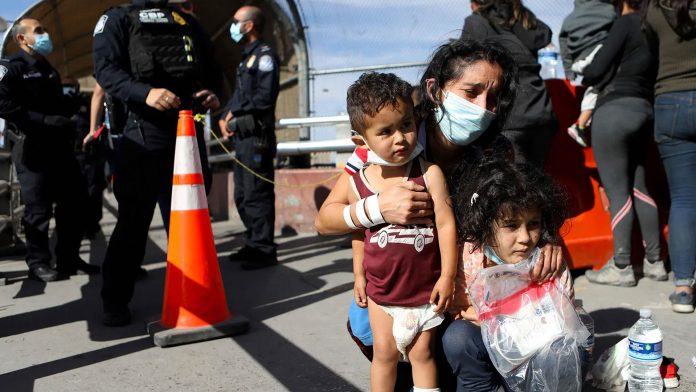Sen. Markwayne Mullin, R-Okla., told NBC’s “Meet the Press” that he believes children born in the U.S. should leave the country with their parents if the family is deported while living in the country illegally. NBC anchor Kristen Welker posed a hypothetical scenario during the interview, referring to a recent U.S. Supreme Court ruling restricting the ability of federal judges to impose nationwide injunctions.
Debate over birthright citizenship
The Supreme Court’s decision could soon impact President Donald Trump’s executive order denying U.S. citizenship to children born on American soil if their parents are residing in the country illegally.
Without broad injunctions, the order could take effect in some states within 30 days.
Welker argued the high court’s ruling could impact babies who are born to people living in the U.S. illegally, specifically if the parents are being deported. Welker called it “really unclear” what the ruling means for children.
Welker asked, “Do you think babies who are born to undocumented parents should be deported, senator?”
“There’s a whole industry that has stood up to bring people here in their last month of pregnancy to have a child here, and they come here on a vacation visa,” Mullin responded. “Then they have a child so their child can be U.S. citizens. It’s a whole industry. We’re trying to end those who are gaming the system.”
Welker asked again if babies should be deported.
“They should go where their parents are,” Mullin responded. “Why wouldn’t you send a child with their parents? Why would you want to separate them? I wouldn’t want to be separated from my kid and no parent should. So when they’re deported, they most definitely should go with their parents.”
Supreme Court restricts nationwide injunctions
At the center of the discussion is a Supreme Court ruling tied to lawsuits filed in Massachusetts, Maryland and Washington, where lower courts placed nationwide injunctions on Trump’s executive order, freezing it while litigation played out.
But the justices ruled that local courts should not have sweeping authority to block federal policies nationwide.
That ruling means Trump’s birthright citizenship executive order will remain frozen in the three states where lawsuits were filed, as well as in roughly 20 others that issued similar injunctions.
In states without such injunctions, however, the order could take effect as soon as next month. That would mean a child’s automatic U.S. citizenship could depend on the state in which they are born, unless further litigation and injunctions are issued in those states.

